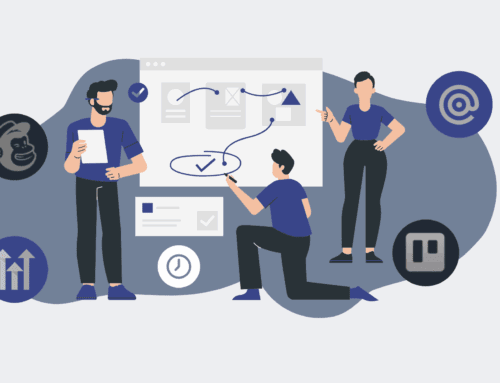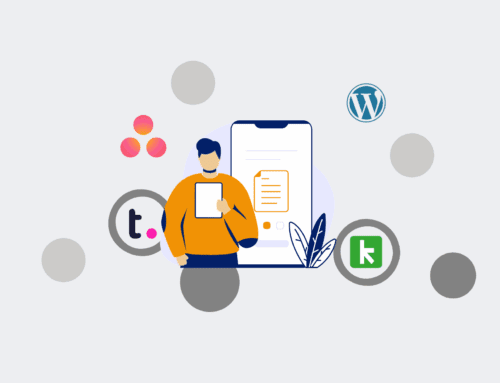Preparing Your Team for AI Adoption in the Hiring Process
The landscape of talent acquisition is undergoing a profound transformation, driven by the rapid advancements in Artificial Intelligence. For business leaders, the question is no longer if AI will integrate into hiring, but how effectively their teams can adopt and leverage these powerful tools. True AI adoption isn’t just about implementing new software; it’s about a strategic shift in mindset, process, and skill sets within your existing team. Ignoring this preparation phase can lead to significant bottlenecks, underutilized technology, and ultimately, a failure to realize AI’s true potential to streamline recruitment and enhance talent quality.
At 4Spot Consulting, we’ve seen firsthand how high-growth B2B companies can either soar or stumble based on their readiness for technological evolution. The challenge isn’t the AI itself, but the human element – preparing your recruiters, HR managers, and hiring leads to work alongside AI, not compete with it. This involves a comprehensive approach that tackles fear, fosters education, and redefines roles within the talent acquisition ecosystem.
Addressing the Human Element: Overcoming Resistance and Building Trust
One of the primary hurdles to AI adoption is human resistance, often stemming from a fear of job displacement or a misunderstanding of AI’s capabilities. Many on your team might view AI as a replacement for human judgment, rather than a powerful assistant designed to augment their skills. To mitigate this, open and honest communication is paramount. Start by framing AI not as a threat, but as a strategic partner that can eliminate tedious, low-value tasks, freeing up valuable human capital for more strategic, empathetic, and complex decision-making.
Illustrate how AI can take over resume screening, initial candidate outreach, scheduling, and even some aspects of preliminary interview assessments, allowing recruiters to focus on building deeper relationships with top-tier candidates, crafting compelling employer branding, and engaging in high-level negotiation. By clearly articulating the benefits – reduced administrative burden, faster time-to-hire, and access to a wider, more diverse talent pool – you begin to build trust and demonstrate the clear ROI for their daily workflows.
Upskilling Your Team for an AI-Augmented Future
Once the initial apprehension is addressed, the next critical step is to invest in targeted upskilling. The roles within talent acquisition are evolving; your team members will need to transition from purely manual executors to strategic managers of AI systems. This means developing skills in data interpretation, prompt engineering (for AI interactions), ethical AI usage, and advanced analytics. They will need to understand how AI algorithms work, recognize potential biases, and learn to interpret the insights AI provides to make informed, human-centric hiring decisions.
Consider structured training programs that focus on practical application. These aren’t theoretical workshops; they should involve hands-on experience with the specific AI tools your organization plans to implement. Encourage experimentation and create a safe space for questions and learning. We often find that a phased rollout, starting with early adopters and internal champions, can create positive momentum and showcase quick wins, demonstrating the value of these new skills in real-world scenarios.
Redefining Roles and Workflows
AI adoption isn’t just about adding a tool; it’s about re-architecting your talent acquisition workflows. This process requires a critical review of existing roles and responsibilities. What tasks can AI reliably automate? Where does human oversight become absolutely crucial? For instance, an AI might parse thousands of resumes in minutes, but a human must then review the shortlisted candidates for cultural fit, nuances in experience, and potential. An AI can schedule interviews, but the human recruiter owns the candidate experience and ensures seamless communication.
Working with your team, map out new workflows that seamlessly integrate AI at various touchpoints. This collaborative approach ensures buy-in and helps identify potential friction points before they become operational hurdles. Document these new processes clearly, establishing new KPIs that reflect the efficiencies gained and the strategic value added by your AI-augmented team. The goal is to create a symbiotic relationship where AI handles the volume and velocity, while your human team provides the empathy, strategic insight, and critical judgment.
Cultivating a Culture of Continuous Improvement and Adaptability
AI technology is not static; it’s constantly evolving. Therefore, preparing your team for AI adoption is an ongoing journey, not a one-time project. Foster a culture of continuous learning and adaptability. Encourage your team to stay informed about new AI trends, share best practices, and actively provide feedback on the performance of integrated AI tools. This feedback loop is invaluable for optimizing your AI systems and ensuring they truly serve your business objectives.
Leadership plays a pivotal role here. Actively champion AI initiatives, celebrate successes, and address challenges transparently. When your leadership team demonstrates a clear vision for AI’s role in the organization’s future, it inspires confidence and encourages proactive engagement from your talent acquisition team. The ultimate aim is to create a dynamic environment where AI is seen as an indispensable partner in the pursuit of exceptional talent, not a complex or threatening addition.
By investing in strategic preparation – addressing human concerns, upskilling your workforce, redefining workflows, and fostering a culture of adaptability – you can ensure your team is not just ready for AI, but empowered by it. This strategic foresight transforms potential disruption into a powerful competitive advantage, enabling your organization to hire faster, smarter, and with greater precision than ever before.
If you would like to read more, we recommend this article: The Future of Talent Acquisition: A Human-Centric AI Approach for Strategic Growth








